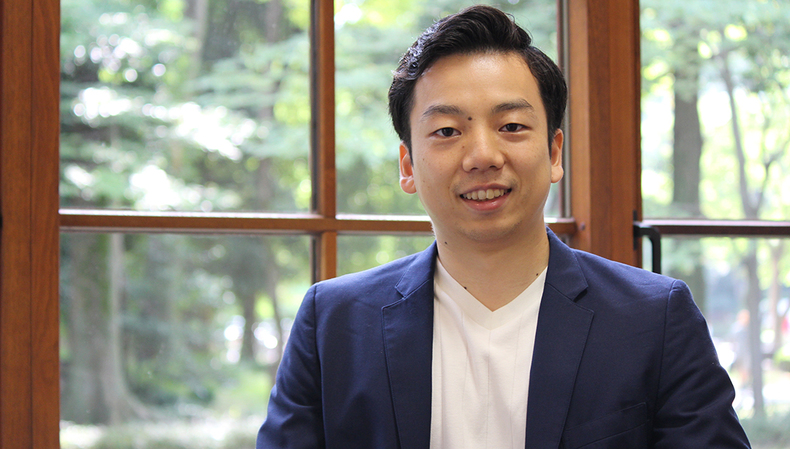College of Liberal Arts, Fourth-year student (at the time of interview)
Major in Economics

Overseas study opens the way for the future
Hoping to gain practical English language skills
Even before I enrolled in ICU, I had been hoping to become a kind of person who could work overseas in the future. For that purpose, it was necessary more than anything else to gain practical English skills and I decided to participate in International Exchange Programs to study together with local students in an English-speaking country.
In order to take part in exchange programs, it is necessary to satisfy certain conditions such as English proficiency and good academic records. We also need to adapt ourselves to living in another country. ICU offers many opportunities to improve our English skills and to experience living and learning in English-speaking countries. Among them are an English language class we can take in our first through second year, the English for Liberal Arts Program (ELA), the Study English Abroad Program (SEA Program), which allows us to study English during the summer vacation, as well as other summer programs where we can pursue our areas of academic interest in English.
I joined the SEA Program during the summer vacation of my first year and the Field Studies in British Culture Program in the summer of my second year. Especially in the Field Studies in British Culture Program where I studied at The University of Leeds, I found my sense of values expand through discussion with students living in different cultures, from various backgrounds and with different points of view. I also experienced the exhilarating impact of living and studying overseas that was stronger than I had imagined. As a result, I became more motivated to study abroad.
Things we can gain only by participating in exchange programs

I had many assignments for my classes, which forced me to study in the library until midnight every weekday. During the daytime, however, I did many things outside the classroom: I worked out in the gym on campus, practiced at the aikido club and took part in local community meetings. Because I engaged in various activities other than learning, I found each day more rewarding than tough or taxing.
I was able to accomplish several goals during my study in the States. I acquired practical English-language skills, the original purpose of my study abroad. I broadened the knowledge I had gained at ICU in business and economics and also expanded my horizons.

There are other things unrelated to my study that I was able to gain precisely because I went overseas. For instance, I was introduced by the staff of the international office of Guilford College and participated in a conference organized by the TOMODACHI Initiative where I met Japanese students and Japanese people working in the States. This organization is engaged in various activities in Japan and I am now working in its office in Japan as an intern. I feel it is great that I was able to meet, through these activities, the kind of people who are role models for me in chasing the dream of working around the world someday.


Doing all you can, whatever you try, opens up new pathway
I am really happy to have joined the Exchange Program. By giving my best shot in whatever I did―studying in class, doing aikido and soccer, taking part in TOMODACHI Initiative meetings, engaging in volunteer work and tackling all other activities―I was able to meet people and gain experiences I hadn't imagined before I left Japan. They have paved the way for the realization of the dream I hope to pursue in the future.
If you are wondering whether you should take part in the Exchange Program, I would say, without hesitation, that you should go ahead. Even if you are nervous, there are plenty opportunities and environments at ICU which will help you to prepare for overseas study. By joining short-term study abroad programs like the SEA Program and the Summer Study Program and by spending time with students and teachers from other countries on campus, you can improve your English skills and deepen your understanding about diversity.
I hope you will keep your dream of overseas study alive and try to make it come true, taking one step at a time at ICU toward its fulfillment. Then, I think, things will work themselves out so you can study abroad and forge ahead into the future.



